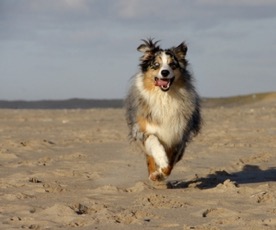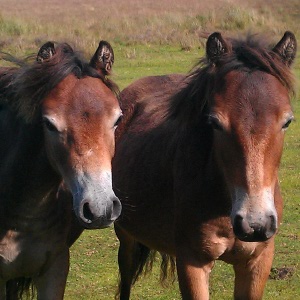Reasons For Your Animal To Love Veterinary Physiotherapy

What is physiotherapy and how can it help animals?
Often also called veterinary physiotherapy - a physiotherapist will assess and treat injuries to the muscle, tendon, joint capsule and ligaments. A wide variety of conditions can be treated, and following orthopaedic surgery as part of the rehabilitation process, physiotherapy can especially have excellent results.
How long does a physiotherapy session last?
An animal physiotherapy session may last between 30 minutes and 1 1/2 hours.
Typically the physiotherapist will also provide the animal owner (or its keeper) with an exercise programme, which can be completed between the physiotherapists visits. They can also provide advice on any adjustments that should be made to the animals environment, so that the animal can complete tasks more easily.
Although physiotherapy is very successfully used with equine, canine or other animal athletes for competition, it can actually be enjoyed by any animal to help improve mobility and wellbeing, including your domestic pet.
Choosing an Animal or Veterinary Physiotherapist
The title 'Animal or Veterinary Physiotherapist' is not protected by law which means that anyone unfortunately, can in theory call themselves an animal or veterinary physiotherapist regardless of their qualifications, (if any). The vast majority of professionally qualified physiotherapists working with animals will be a member of a professional association, (who require a certain standard of qualifications to be achieved) - find out more below!
Chartered Physiotherapists (Who Work With Animals)
The title 'Chartered Physiotherapist' is protected by law and can only be used by physiotherapists who have achieved a degree in human physiotherapy, on a course which holds Chartered Society of Physiotherapy (CSP) accreditation. If a Chartered Physiotherapist wants to work with animals, they must complete further training.
On achieving certain qualifications, they can then join The Association of Chartered Physiotherapists in Animal Therapy (ACPAT), this is recognized by the CSP as the Clinical Interest Group representing the interests of Chartered Physiotherapists in Animal Therapy. This means that ACPAT members are fully qualified Chartered Physiotherapists (MSCP's) who have also additionally trained in physiotherapy and rehabilitation for animals.
Members of the Association of Chartered Animal Physiotherapists (ACPAT) will either have completed the MSc/Postgraduate Diploma in Veterinary Physiotherapy courses run by the University of West of England (Hartpury College) and University of Liverpool, (and formerly by the Royal Veterinary College), or completed the ACPAT Core Knowledge and Skills course.
When choosing a physiotherapist for your animal (or yourself!) if you choose one who is a member of the ACPAT and so has either the initials MCSP (Member of Chartered Society Physiotherapy) or FCSP (Fellow of Chartered Society of Physiotherapy) you can know that they've not only completed a high level of training/education, but also adhere to the Chartered Society of Physiotherapy's Regulations and Standards of Practice. Additionally , this type of physiotherapist will be able to treat you, the rider, as well as the horse - which can be sometimes beneficial.
Veterinary / Animal Physiotherapists (non-Chartered)
There are 4 other main professional associations in the UK, which your veterinary or animal physiotherapist could be a member of:
1. National Association of Veterinary Physiotherapists'
2. Association for the Scientific Study in Veterinary and Animal Physiotherapy (ASSVAP);
3. International Association of Animal Therapists;
4. Institute of Registered Veterinary and Animal Physiotherapists.
To become a member of these associations also requires specific animal or veterinary physiotherapy training/qualifications to have been completed and achieved. Do ask your potential therapist which association they're a member of, if you're unsure.
Other Points
If you're still undecided which therapist to choose - do speak to them first before deciding. See if they've experience relevant to your animal and his or her condition. Also, some therapists may specialise with working with certain animals, e.g. small animals rather than large animals. Your vet may know of an appropriate specialist animal physiotherapist to refer you to also.
Following several years of campaigning and research, a new professional voluntary register has now been established. The Register of Animal Musculoskeletal Practitioners (RAMP) is designed to help ensure that the public can confidently choose a professionally qualified therapist for their animal. Take a look at the 'RAMP' website at http://www.rampregister.org.
How a Veterinary Physiotherapist Will Work
A physiotherapist working with animals should work alongside your veterinary surgeon to provide the best possible health benefits for your animal. (NB: Please remember it is illegal for anyone other than the owner to treat a horse without the veterinary surgeon's consent). A physiotherapist can use various methods including (but not exclusively) - 'hands on' manipulation, trigger point release, stretches, laser treatment, magnotherapy, ultrasound and electrotherapy (including TENS).
Physiotherapy can help in many circumstances to help your animal (small or large!), to recover from injury. However, often the best results from physiotherapy are when it's used in the early stages after injury. As with all complementary therapies it should not be used in isolation but as an essential extra to conventional veterinary medicine. Your vet will be able to advise you if they think physiotherapy will benefit your animal.
Many pet/livestock insurance companies will now pay for physiotherapy for your animal, where it's recommended by your Veterinary Surgeon.
Find out more about what to expect from a canine physiotherapy session here.
Training as an Animal Physiotherapist
Are you interested in a career as an animal physiotherapist? Find out how you can, by visiting my free training advice page here
What Research Is There To Evidence Benefits Veterinary Physiotherapy?
There has been a variety of research completed and published regarding physiotherapy for animals. See below and get more research information at my Research page here.
UK Veterinary Physiotherapists
Devon
- West Country Canine Therapy
- Helen Tompkins (also covers North Cornwall and West Somerset)
More Information on Veterinary Physiotherapy
What to Expect From a Canine Physiotherapy Session?
Research - Evidence for canine rehabilitation and physical therapy
Watch My 3 Ways To Help Your Dog's Musculoskeletal Health Presentation
Would you like information on Physiotherapists for your animal? Please email us at info@taranet.co.uk - we'll be pleased to try and assist!
About The Author
This article has been extensively researched and written by Suzanne Harris. Who is also the designer and developer of this site. A lifelong animal lover with a passion for ensuring animals can access complementary therapies for their health and wellbeing.
